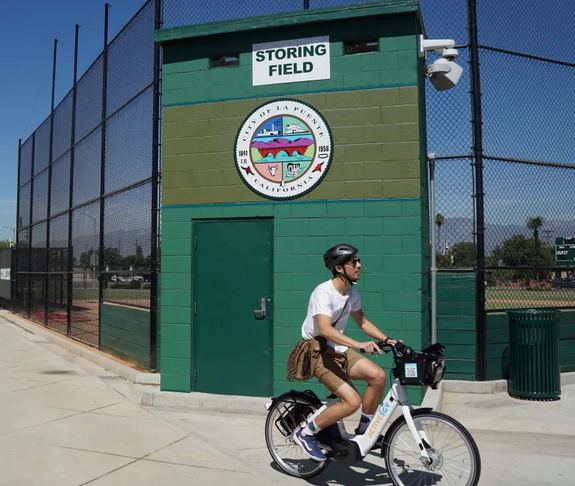The California Air Resources Board (CARB) announced that it will grant $1 million to help twelve organizations conduct assessments of transportation needs and gaps in their communities. The studies aim to find out what residents themselves see as problems - and solutions - in their current transportation system. Community needs assessments are also a key requirement for many state and federal programs that grant money for transportation projects.
The grants are from CARB's Clean Mobility Options program, which helps fund the development of a variety of transportation programs, including bike-share, scooter-share, transit, carpools, and electric car-share. It is funded by the California Climate Investments, with money from the cap-and-trade program.
As noted by CARB executive officer Steven Cliff:
“Low-income neighborhoods and communities of color shoulder the burden of having an overconcentration of pollution while also dealing with historic disinvestment that limits their mobility options. The goal of this effort is to tackle the lack of transportation options with tools that empower residents to advocate for change, while also building the clean mobility infrastructure that will make sure no one is left behind in a zero-emissions future.”
There is no hard and fast rule about how these assessments must be done, but they need to include engagement of the community through tools like surveys and virtual community events as well as analysis of the information gleaned.
There is also not supposed to be any preordained notion of what solutions might work best for residents. They could be anything, including better transit, shared bikes, sidewalks, crosswalks, etc. The process is not supposed to be prescriptive or top-down; it's not supposed to tell people what their options are. Instead, community members are asked to identify their own challenges and gaps and identify possible solutions that would work for them.
A past round of these needs assessment grants - in 2020 - resulted in needs assessments in 24 communities throughout California. Here's an example of one from the last round of grants, from Watsonville, conducted by Regeneración Pajaro Valley. Some of those transportation analyses helped inform the creation of new projects - and some of those will receive funding under the same program (to be announced at a future date).
That first round of grants also made program managers realize that the nonprofits and agencies running the community outreach and analysis needed more money to do a thorough job, so they doubled the amount being granted from about $50,000 to about $100,000 per grantee (which meant only half the number of grants were awarded).
Below is a list of the most recent grant recipients.
- City of Escondido, San Diego County: $100,000
- Fernandeño Tataviam Band of Mission Indians, Los Angeles County: $99,960
- Gold Coast Transit District, Ventura County: $41,950
- Greater Sacramento Urban League, Sacramento County: $99,960
- LA County Bicycle Coalition, Los Angeles County: $99,750
- Living Better Lives, Monterey County: $100,000
- Rev. Martin Luther King, Jr., Committee Inc., Stanislaus County: $99,960
- Rincon Band of Luiseño Indians, San Diego County: $99,960
- San Joaquin Valley Community Shared Mobility, Kings County: $100,000
- South Modesto Businesses United, Stanislaus County: $99,960
- UC Santa Cruz, Santa Cruz County: $97,174
- Valley Improvement Project, Stanislaus County: $99,960






